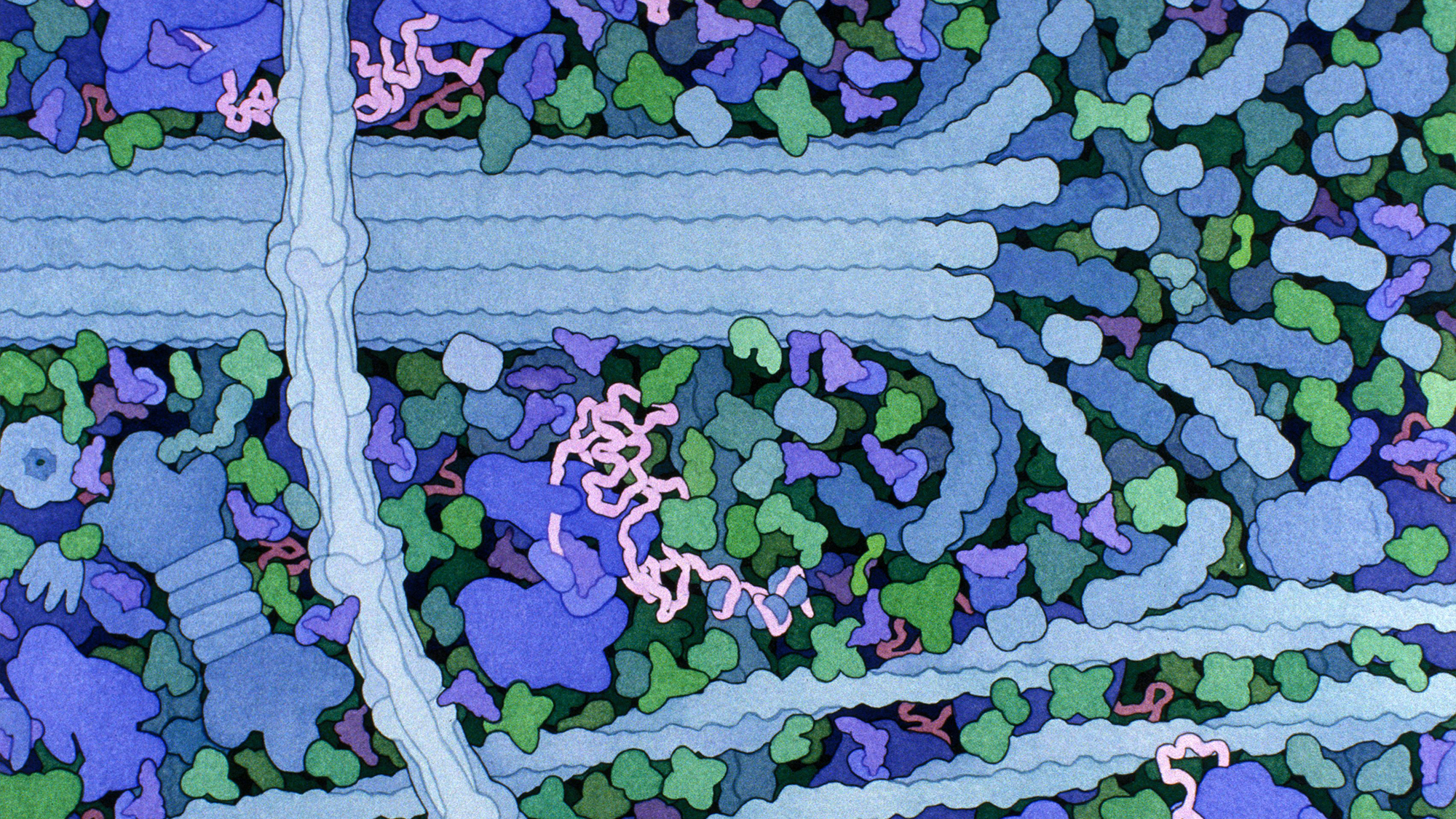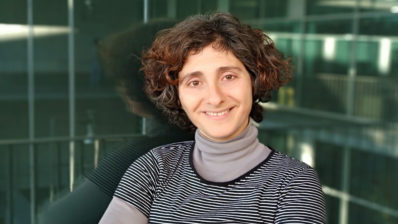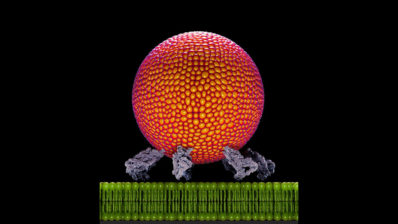Research in four minutes (Rin4′), an annual scientific outreach competition launched by the Pompeu Fabra University (UPF) in 2015, gathers young PhD researchers from all over the UPF to communicate their science to the public in the best understandable way, just in four minutes. Today we meet Artem Komissarov – the winner of the fifth Rin4’ edition.
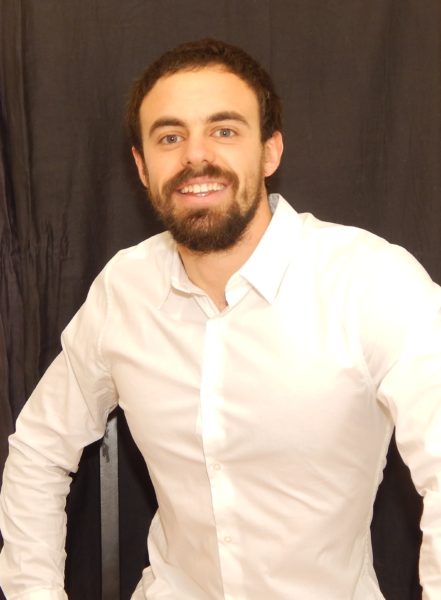
Artem, you have participated in Rin4′ before… what has been driving your motivation to participate in this competition?
Well, first of all, it is a personal challenge. To prepare this talk, one needs to zoom-out in order to go from teeny-weeny molecules all the way up to see the big picture, and then find the right words to explain in a clear way what is it all about. Second, competition is fun: you think, prepare, expect it coming, and then enjoy listening to the fantastic talks of your peers! I find it absolutely incredible how my colleagues explain extremely complex things in such a clear, apprehensible way!
What was your talk about? Can you explain it in a few words?
Well, let’s try! Generally, I am trying to understand our brain. The cells that build it up – the neurons – are often extremely long. To be able to send and receive signals, to learn and memorize, neurons have to transport thousands of molecules over long distances, and in my PhD thesis I am trying to understand how they do it.
To explain how exactly I study this transport, I use the history of Toyota. To create the first car in the country, the founder of the industry, Kiichiro Toyoda, bought a Ford car, broke it apart and copied every single detail. It helped him to understand how the car functions. Later, this knowledge helped Kiichiro to improve the first Toyota model, thereby paving the way for the young brand to the world market.
To revolutionize our understanding of transport in neurons, we are adopting a similar approach, first creating “a copy” of the system. I am using separate molecules, trying to “replicate” neuronal transport without living neurons, just in vitro. This technique is relatively new in the field and is called “molecular reconstitution”. There is a lot of biochemistry here and biophysics.
“To send and receive signals, neurons have to transport thousands of molecules over long distances. In my PhD thesis I am trying to understand how they do it by trying to “replicate” neuronal transport in vitro”
Artem Komissarov
During my research, I am filming how the molecules are moving under the microscope. You can imagine one of my movies through this series of images (below). Here you can see how one motor protein (green dot) is moving along the microtubule (greenish line), and another one is transporting a cargo molecule (red dot). We can learn a lot about neuronal transport, testing different motor proteins, cargo molecules and their mutants. I hope you understand what I mean…
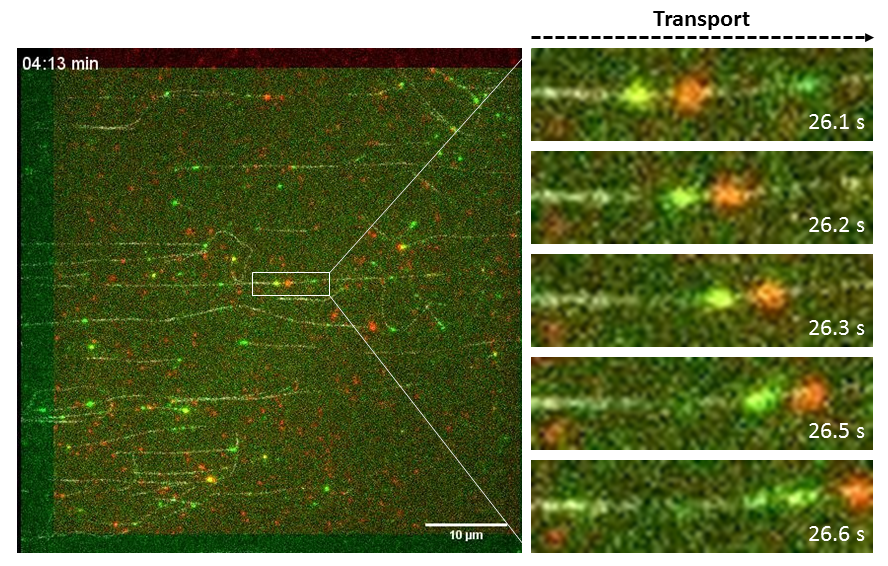
I believe I do! Why do you think competitions like Rin4’ are important?
Researchers are being trained throughout their whole career to give scientific talks that are usually focused on very specific pieces of information, are full of scientific jargon and also have a quite specific format. It makes scientific results poorly understandable for professionals from other fields. Journalists sometimes explain scientific discoveries in a skewed or even wrong way, and then society might underestimate the importance of research, and politicians might eventually cut the financing of research and education. Just because researchers and the value of their scientific data are hard to understand. Events like Rin4’ not only make scientists closer to society, but also teach young investigators how to communicate their research goals, methods and results in a way that is understandable for everyone.
Events like Rin4’ teach young researchers to communicate their research goals, methods and results in an understandable way
Thank you very much, Artem! And the last question: how difficult is it to interview yourself?
Actually, not more difficult than to be a scientist! In fact, to do research, one often has to conduct dialogues with thyself. What do we know about phenomenon X? – What would we like to know? – How do I think X might work? – How can I check my hypothesis? Asking and answering this chain of questions makes researchers what they are. And asking and answering the questions of this interview on my own a while ago fueled my motivation to participate in this years’ Rin4’.
You can hear and see Artem’s 4-minute talk that lead him to win the Rin4′ competition!


